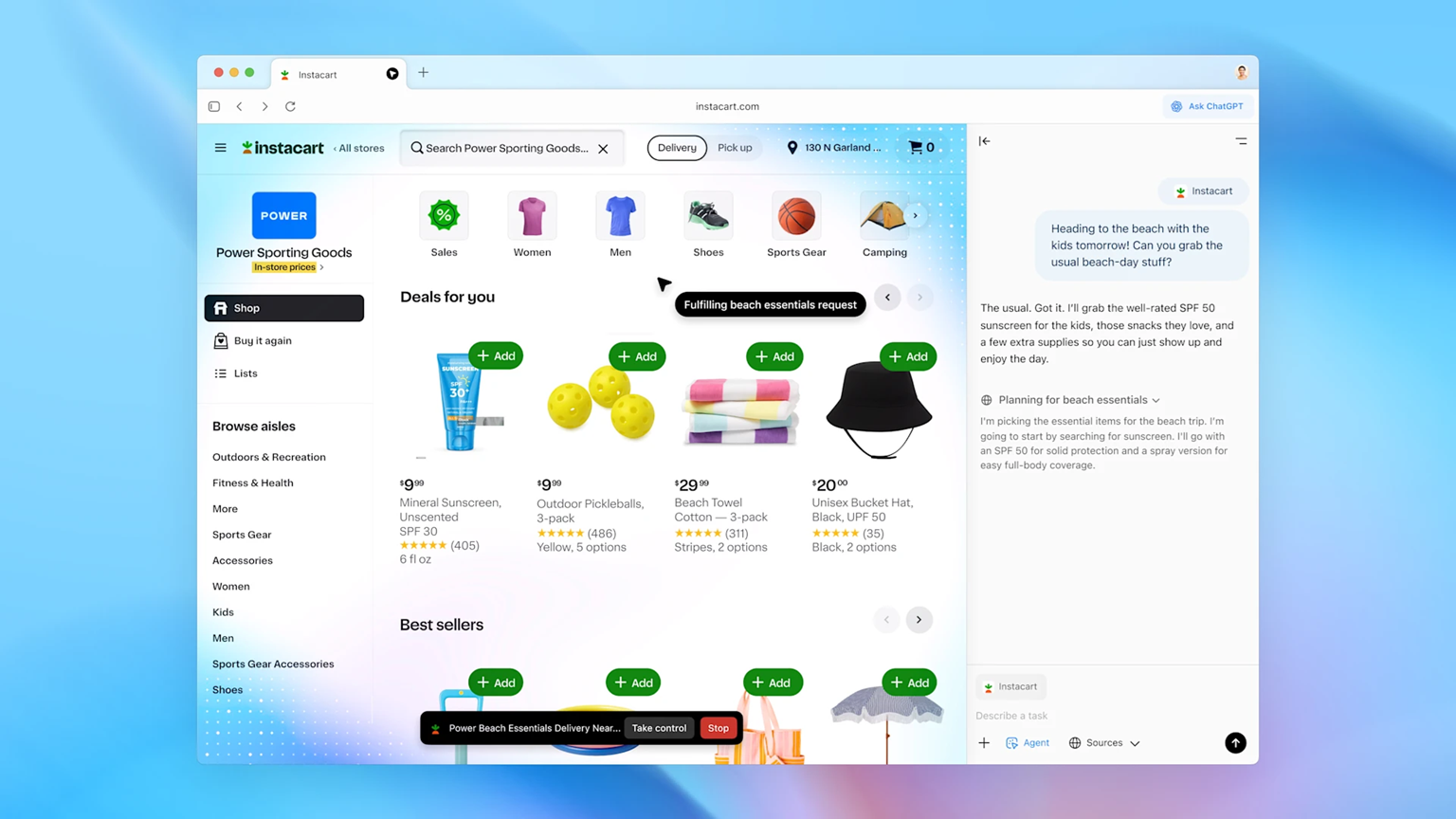OpenAI Launches ChatGPT Atlas: An AI‑Powered Browser for macOS

Key Points
- ChatGPT Atlas launches on macOS with built‑in AI assistant.
- Browser memories let the AI recall browsing history with user consent.
- Agent mode enables multi‑step, supervised tasks directly in the browser.
- Strong privacy controls include incognito mode and parental supervision.
- Aims to transform web browsing from passive viewing to active assistance.
- Windows, iOS and Android versions announced for future release.
OpenAI has released ChatGPT Atlas, an AI‑infused web browser for macOS that embeds the ChatGPT assistant directly into the browsing experience. The browser offers features such as browser‑level memory, an experimental agent mode that can perform multi‑step tasks, and strong privacy controls, including incognito mode and parental supervision. While Windows, iOS and Android versions are slated for later release, Atlas aims to transform the web from a passive viewing platform into an active, task‑driven environment, positioning itself as a challenger to traditional browsers.
Introducing ChatGPT Atlas
OpenAI announced the launch of ChatGPT Atlas, a new web browser for macOS that integrates the ChatGPT conversational AI directly into the browsing interface. Unlike conventional browsers, where users must switch tabs to consult a chatbot, Atlas places the AI assistant in its own window by default, allowing users to ask for summaries, recommendations or task assistance without leaving the page they are viewing.
Memory and Contextual Awareness
Atlas includes an opt‑in "browser memories" feature that lets ChatGPT retain details from a user’s browsing history, similar to how it remembers prior conversational context. These memories are private to the user’s ChatGPT account and can be viewed, archived or deleted at any time. Users can also browse in incognito mode or disable memory creation on specific sites, giving them precise control over what information is stored.
Agent Mode for Automated Tasks
The browser’s experimental "agent mode" allows ChatGPT to perform multi‑step actions inside the browser under user supervision. In this mode, the AI can open tabs, read content, extract information and even format results into slides or spreadsheets. It cannot download files, install software, or access a user’s file system, and it requests permission before interacting with sensitive sites such as banking portals.
Privacy and Parental Controls
OpenAI built Atlas with a strong emphasis on privacy and user control. A persistent visibility toggle appears in the address bar, and the browser respects existing ChatGPT supervision settings for child accounts, allowing parents to turn off memory and agent mode entirely. These safeguards aim to keep the powerful AI features transparent and optional.
Positioning Against Traditional Browsers
By embedding an active AI assistant, Atlas seeks to redefine the role of a web browser. While Chrome remains dominant for speed and extensions, Atlas strives to reduce the manual effort users expend when juggling multiple tabs and research tasks. The AI can summarize visited pages, remember search journeys, and execute actions such as filling out forms, potentially saving users time and reducing cognitive load.
Future Plans and Availability
Currently available for macOS, OpenAI plans to roll out Windows, iOS and Android versions at a later date. The initial release is targeted at Plus, Pro and Business users, with broader availability expected as the product matures.